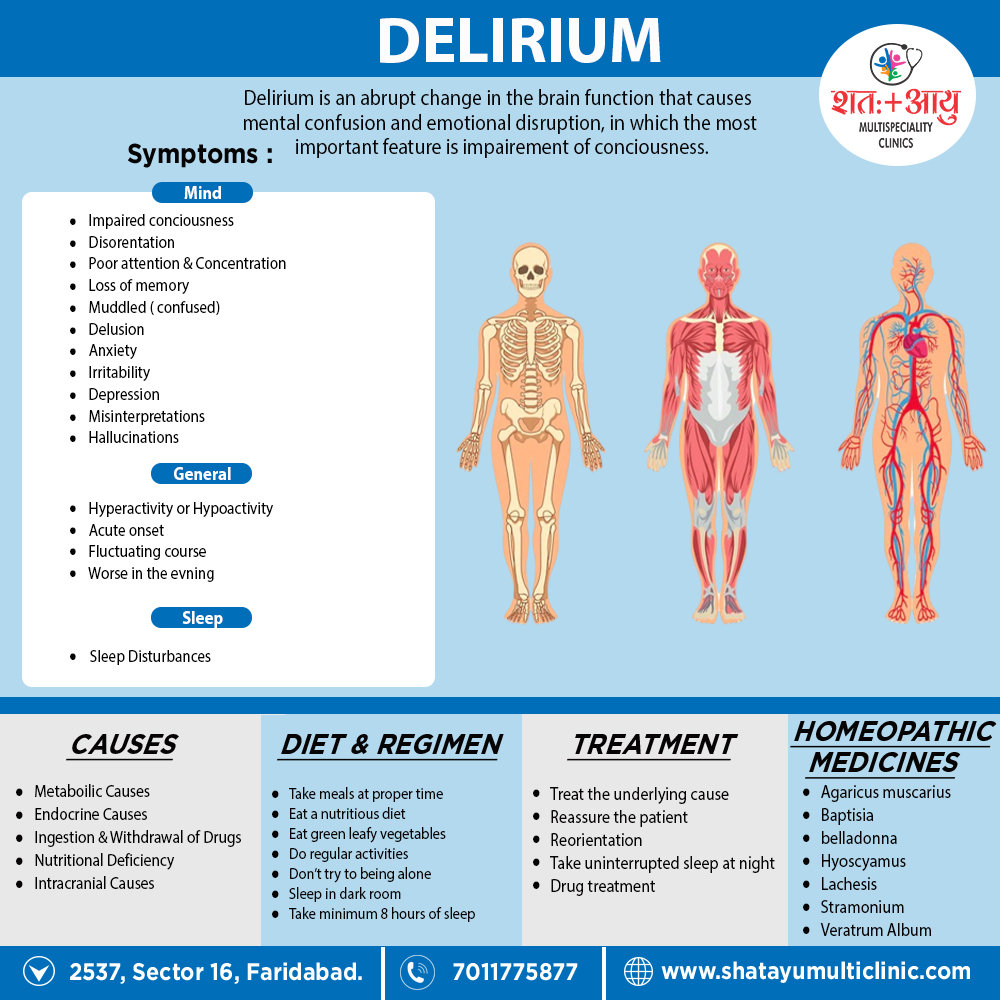Belladonna:
Generally, Belladonna comes to mind first in delirium. Moreover, It has a violent delirium with loud laughing screaming out, and grinding of the teeth, and, as in all narcotics, a desire to hide or escape. Additionally, The patient is full of fears and imaginings, also the delirium manifests itself by the most positive ebullitions of rage and fury. Besides this, Its general character is one of great activity with great excitement, a hot face and head and oftentimes there is present a sensation as if falling and the patient clutches the air. Sometimes there is a stupor, and when aroused they strike people bark and bite like a dog and are most violent.
Hyoscyamus:
This remedy has not the intensely high degree of maniacal excitement that we find under Stramonium, nor has it the cerebral congestion that characterizes Belladonna. With Hyoscyamus there is an aversion especially, to light, and the patient fears being poisoned; he will sit up in bed, talk and mutter all the time, and look wildly about him. There is a great deal of nervousness, whining, crying also twitching; he tries to escape from imaginary foes; a constant picking at the bedclothes and objects in the air is most characteristic. All in all, It is the remedy for that curious condition of delirium known as “coma vigil.”
Stramonium:
Specifically, with this remedy the delirium is more furious, the mania more acute and the sensorium more perverted and excited than under Belladonna or Hyoscyamus. Furthermore, the patient desires light and company, is very loquacious, garrulous, laughs, sings, swears, prays, curses also makes rhymes. Besides this, He sees ghosts, talks . with spirits and hears voices. Lastly, the head is raised frequently from the pillow, the face is bright· red, also he has a terrified expression; in fact, he seems to see objects rising from every corner to frighten him. Sometimes a silly delirium is present.
Lachesis:
Is characterized by great talkativeness in delirium. It has also the fear of being poisoned; but the Lachesis delirium is of a low form accompanied by dropping of the lower jaw, also a characteristic is that they imagine them- selves under some super-human control.
Cimicifuga:
This remedy has loquacity, with a continual changing of the subject when talking, imaginings of rats, mice, etc. It is usually dependent upon uterine disease.
Veratrum album:
Veratrum has restlessness, and a desire to cut and tear the clothing as in Belladonna; but with this remedy there is a coldness of the surface of the body and a cold sweat. The patient is loquacious, talks very loud and is frightened at imaginary things. It also has a state of frenzy or excitement, during which he indulges in shrieks, in expressions of fright and in violent cursings of those around him.
Phosphorus:
The delirium of Phosphorus is of a low typhoid type, with tendency to haemorrhage and an apathetic, sluggish, stupid state, where the patient is unwilling to talk and answers question slowly. It has also an ecstatic state, in which he sees all sorts of faces grinning at him. He has also imaginary notions, such as imagining that his body is in fragments.
Baptisia:
Generally, The patient imagines his body either in pieces or double: and scattered about, also he has to move constantly to keep the pieces together.
Thuja:
In brief, Here the patient imagines that he is made of glass and moves carefully for fear of breaking.
Absinthium:
Basically, patient has a delirium with a constant desire to move about.
Agaricus:
Dr Bayes praises this remedy highly in the delirium especially, of typhoid fever, where there are constant attempts to get out of bed and tremor of the whole body. [3]

